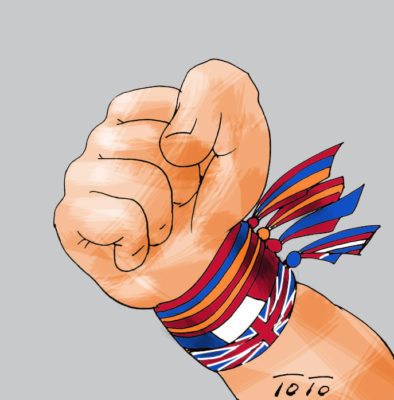The Armenian Diaspora is a force born out of tragedy. It has followed its own path, and perhaps incidentally, it has become a political force to be reckoned with. Diasporan Armenians sometimes fail to recognize the clout they wield to impact policies concerning Armenia. But the enemies of the latter, the Turkish and Azerbaijani governments, realize its potential and they arm themselves to thwart anticipated negative consequences for themselves.
In a recent statement, Ibrahim Kalin, President Recep Tayyip Erdogan’s spokesperson as well as foreign policy advisor, commented on the need for Armenia and Azerbaijan to sign a peace treaty — a peace treaty which is full of potential dangers for Armenia. While making this comment, he stated that the government of Armenia has sent some positive signals. But, he added, diasporan Armenians should also fall in line and understand the benefits of such a treaty for the entire region. “We know for a fact that Armenians have large communities in the US and France,” he said.
This was an inadvertent admission recognizing the power that those communities can exercise. The Turkish authorities have always complained about the political activities of the diasporan Armenians fighting for the recognition of the Armenian Genocide. That has proven to be an impediment for Turkey’s foreign policy in its drive to join the European Union, and will continue as such as long as Turkey aims for membership on the United Nations Security Council.
Currently, Armenia and Turkey have been conducting negotiations to lift the blockade against the former and to establish diplomatic relations, supposedly without preconditions. However, during the course of those negotiations Ankara has begun to insert a precondition — progress with the Armenia-Azerbaijan peace deal. In addition, there are unspoken preconditions, particularly Turkey’s expectations that Armenia drop its demand for Genocide recognition.
The administration of Prime Minister Nikol Pashinyan has understood that expectation and is already signaling to Ankara that the Genocide issue has been outsourced to the diasporan Armenians. That position will not save Pashinyan government’s neck, since Turkey wants to silence the diaspora.
Turkey and Azerbaijan have allocated a substantial amount of resources to quietly combat diasporan Armenian activism.








